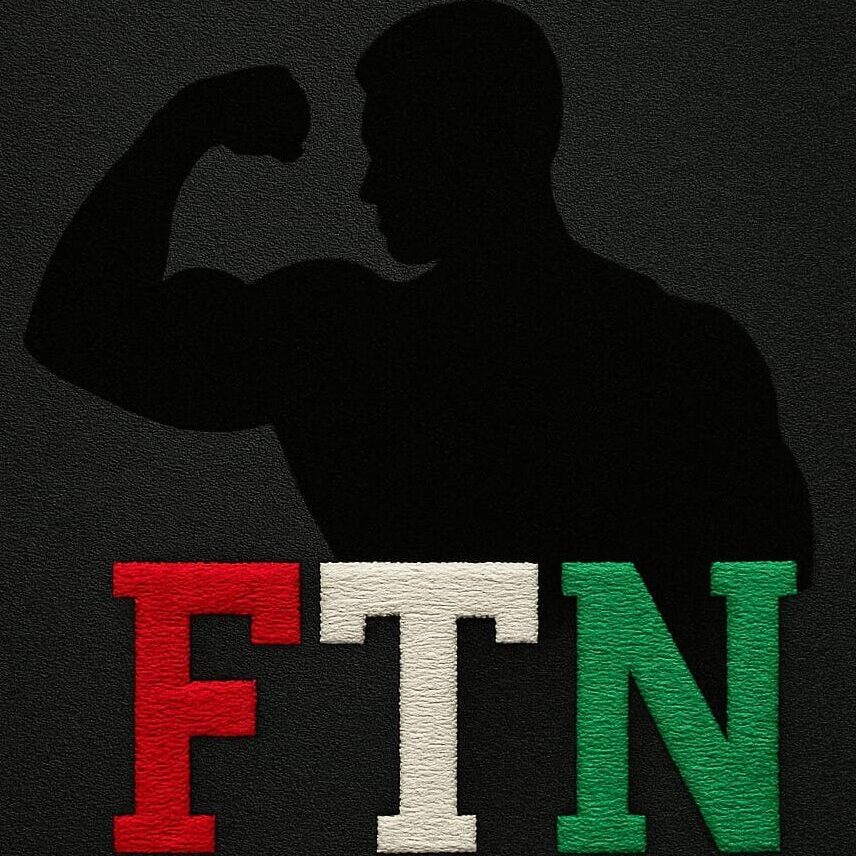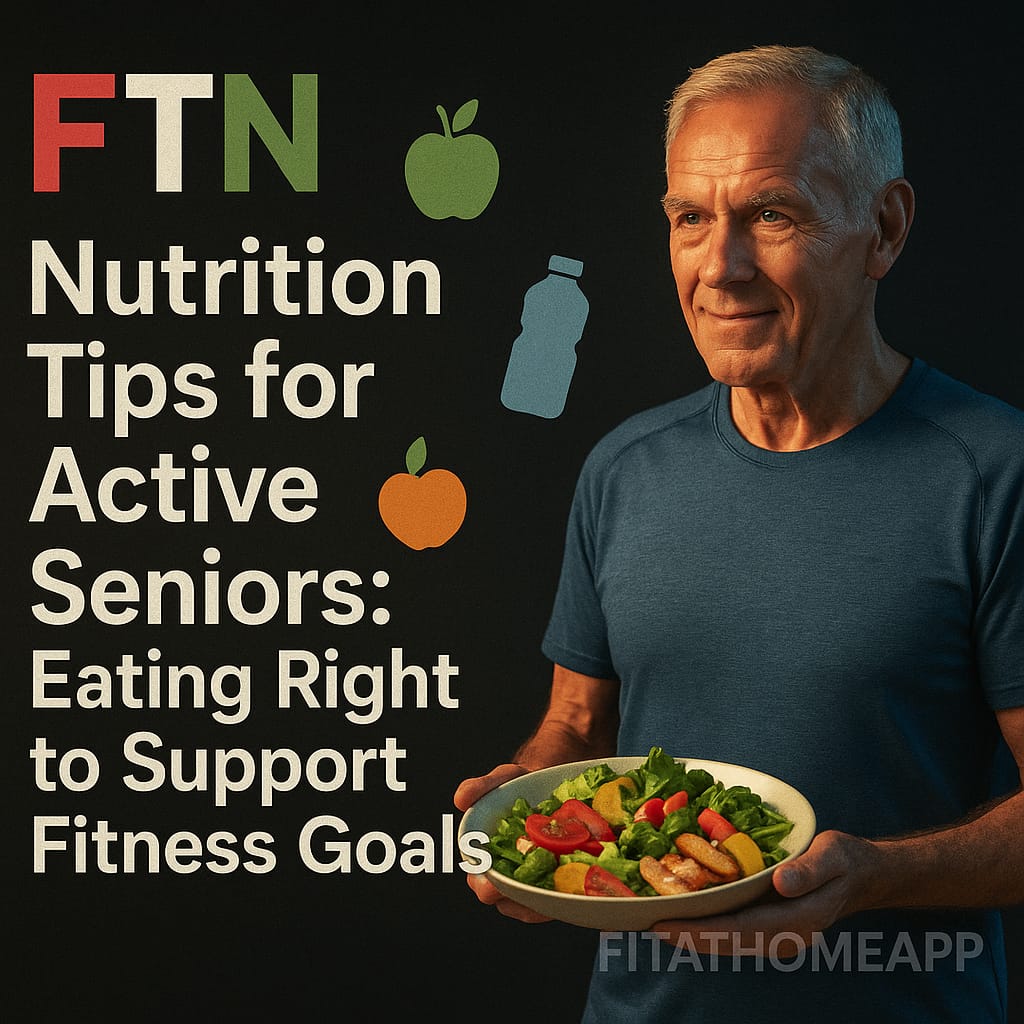Staying active after 65 is a fantastic way to preserve strength, energy, and independence. But what fuels that active lifestyle? The answer lies in smart nutrition choices. 💪
As we age, our bodies go through changes that affect how we process food, absorb nutrients, and maintain muscle. That’s why active seniors need to follow a well-balanced, nutrient-dense diet tailored to their evolving needs. In this guide, we’ll explore everything you need to know about senior nutrition—from protein to hydration—to keep your body strong and energized every day.
🧓 Why Nutrition Becomes More Important with Age
As metabolism slows and nutrient absorption decreases with age, seniors need fewer calories but more nutrients. This means every bite counts!
✅ Proper nutrition for active seniors:
- Fuels muscles and energy
- Supports bone and joint health
- Aids recovery from physical activity
- Enhances mental clarity and mood
- Boosts the immune system
If you’re walking, swimming, gardening, or strength training regularly, your diet needs to support those efforts. Focusing on high-quality proteins, healthy fats, fiber-rich carbs, and hydration is key to performing your best and feeling your best.
🥩 Protein: The Power Nutrient for Muscle Health
Protein is essential for seniors, especially those who exercise. It helps maintain muscle mass, supports tissue repair, and even contributes to a stronger immune system.
👵 Recommended intake:
Most active seniors should aim for 1.0 to 1.2 grams of protein per kilogram of body weight daily. That’s around 70–84 grams of protein per day for a 70 kg adult.
💡 Great sources of protein:
- Lean meats (chicken, turkey, beef)
- Fish (especially fatty fish like salmon 🐟)
- Eggs and dairy (Greek yogurt, cheese, milk)
- Plant-based options (beans, tofu, lentils, nuts)
🍽 Tip: Distribute your protein throughout the day with snacks and meals—like adding nut butter to whole grain toast or having a boiled egg mid-morning.
🥑 Healthy Fats: Not the Enemy!
Fats are not bad—in fact, healthy fats are vital for brain health, joint mobility, and sustained energy.
👍 Focus on:
- Omega-3s: Found in fatty fish, chia seeds, flaxseeds, and walnuts. Help reduce inflammation and protect heart health.
- Monounsaturated fats: Found in avocados 🥑, olive oil, and almonds. Help manage cholesterol and improve heart function.
🚫 Avoid:
- Trans fats (often found in processed baked goods)
- Excess saturated fats (like those in fried foods)
🥗 Try this: Drizzle olive oil on a salad or add avocado slices to your sandwich for a nutrient boost.
🍞 Carbohydrates: Your Main Energy Source
Carbohydrates fuel your workouts—whether you’re power walking or doing gentle yoga. But not all carbs are created equal.
✅ Choose complex carbs for long-lasting energy:
- Whole grains (brown rice, oats, quinoa)
- Legumes (beans, lentils)
- Vegetables and fruits
❌ Limit simple carbs like white bread, pastries, and sugary snacks—they cause energy crashes and don’t offer much nutrition.
🌾 Fiber-rich carbs also aid digestion and help manage blood sugar. They’re especially helpful for seniors at risk of diabetes or heart disease.
💧 Hydration: The Forgotten Fitness Essential
Dehydration can sneak up on seniors because the sense of thirst weakens with age. Yet, water is just as important as any nutrient.
🚱 Signs of dehydration:
- Dry mouth
- Dizziness or confusion
- Fatigue
- Headaches
- Muscle cramps
💧 Tips to stay hydrated:
- Carry a reusable water bottle
- Set reminders to sip every hour
- Eat water-rich foods like cucumbers 🥒, watermelon 🍉, and oranges 🍊
- Avoid excess caffeine and alcohol
📌 Pro tip: Drink before, during, and after any physical activity—even light workouts!
🧑🍳 Meal Planning Tips for Active Seniors
Planning meals helps ensure you’re getting the right balance of nutrients without over- or under-eating.
🗓 Weekly Planning:
- Choose 2–3 lean proteins
- Buy a variety of colorful fruits and veggies
- Prep whole grains in bulk (like brown rice or quinoa)
- Plan balanced snacks (Greek yogurt + berries, hummus + carrots)
🍽 Portion Control:
- Use smaller plates
- Measure portions with your hand or a small cup
- Include all food groups in every meal
👨👩👧 Tip: Meal prep with friends or family for fun and accountability. Cooking together is a great way to stay social!
💊 Supplements: Helpful but Not Always Necessary
While food should be your main nutrient source, some seniors may benefit from supplements, especially when advised by a healthcare provider.
🧴 Common supplements for seniors:
- Vitamin D: For bone health and immunity
- Calcium: Supports bones and muscles
- Vitamin B12: Aids energy and brain function
- Magnesium and potassium: For heart rhythm and muscle function
❗Always consult your doctor before starting supplements, especially if you take medication or have chronic conditions.
👟 Matching Nutrition to Your Activity Type
Different activities demand slightly different nutrition approaches.
- Strength Training: Focus on protein-rich meals post-workout for muscle recovery.
- Walking or Light Cardio: A balanced snack with carbs and protein can help maintain stamina.
- Swimming or Water Aerobics: Rehydrate and replenish with water and a snack like fruit + nuts afterward.
- Yoga or Stretching: Eat light beforehand and rehydrate with water or herbal tea.
📚 Real-Life Inspiration: Active Seniors Who Eat Smart
- Eleanor, 73, added more protein to her breakfast and now feels less tired during her morning walks.
- Tom, 70, started prepping weekly grain bowls with chicken and veggies. He says it keeps him energized for pickleball! 🏓
- Maria, 68, drinks herbal tea throughout the day and snacks on Greek yogurt—she’s never felt better in her yoga class.
🏁 Final Thoughts: Your Nutrition Is Your Power
Staying active after 65 is possible—and enjoyable—when paired with the right nutrition. A diet rich in lean proteins, healthy fats, whole carbs, fiber, and water fuels your workouts and keeps your mind sharp.
🥗 Don’t think of nutrition as a diet—it’s a way of life that supports:
- Stronger muscles
- Better balance and mobility
- Improved mood and brain function
- A happier, more independent lifestyle
👨👩👧 Share meals with loved ones, try new recipes, and celebrate the joy of eating well. You’ve earned it.
📣 Do you have a favorite senior-friendly recipe or nutrition tip? Share it in the comments and inspire others to live stronger and healthier!
The video titled “Nutrition for Seniors: How to Maintain a Balanced Diet as We Age” from a YouTube channel highlights the fundamentals of healthy nutrition for older adults. It explores the dietary challenges they face—such as adjusting caloric intake to match changing body needs, prioritizing nutrient-dense foods, and navigating everyday obstacles in accessing and consuming proper meals.
Add Practical Meal Examples:
Include visuals of balanced meal options suitable for seniors, such as high-fiber breakfasts or low-sodium dinners. This would make the advice more actionable.
- Feature a Registered Dietitian:
Brief expert commentary from a certified nutritionist could add credibility and provide deeper insights—such as when to consider supplements. - Show Real-Life Challenges:
Integrate scenes of seniors dealing with food preparation or shopping difficulties, paired with solutions or tips for overcoming them.

